Columns
BJP Ahead, AAP Close, Congress Nowhere
Surajit Dasgupta
Jan 22, 2015, 11:30 AM | Updated Feb 18, 2016, 12:12 PM IST
Save & read from anywhere!
Bookmark stories for easy access on any device or the Swarajya app.
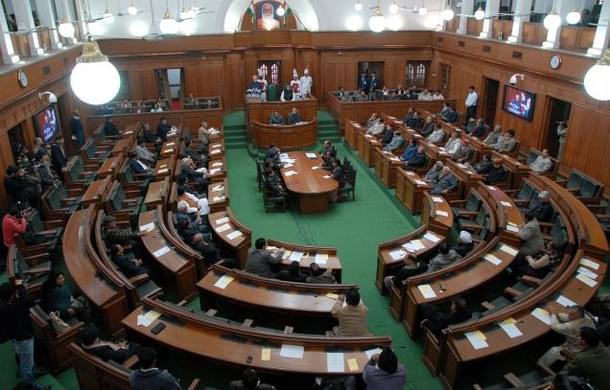
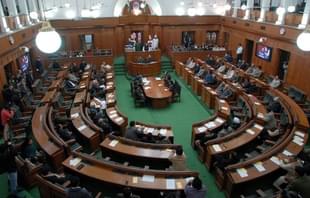
The party ruling at the Centre has the local leader with the best record. Challenger Aam Aadmi Party is good at rabble-rousing. And the Congress has a good face as its Delhi leader, but neither his clean image nor nostalgia of the period 1998 – 2013 is likely to work.
The dramatis personae are now known. It’s Bedi-versus-Kejriwal-versus-Maken for Delhi’s voters to choose from, never mind that the third — in this order as well as in the electoral race — has not been named as the Congress’s chief ministerial candidate.
Let’s not talk about the fans, or bhakts as they are being referred to of late. How will the fence-sitters decide their votes? How informed are they to make the right decision? There are three prime claims, one of each leader: ‘I have been a no-nonsense cop’, ‘I am the only honest person around’ and ‘It was the Congress that brought development to Delhi’.
AAP
It is to be noted with some discomfiture that self-certification has started working in Indian politics. Arvind Kejriwal, the national convener of the Aam Aadmi Party, therefore begins with an advantage, whatever be the facts about him:
‘Honesty’ in records —
– Anybody landing from a foreign country ending up with an AAP ticket to fight Lok Sabha or Vidhan Sabha elections, provided he/she is a Ford Foundation beneficiary;
– An FIR alleging that the book Swaraj is a plagiarised version of Bharatiya Raj Vyawastha;
– AAP’s No. 2 Manish Sisodia accused of paying house rent and salary to his wife from the donation collected for his NGO Kabir;
– Allegation of manipulation of internal elections in the party to ensure the positions of its decision makers are not challenged, …
‘Honesty’ in fulfilling promises—
– The voters were told their electric bills would reduce when Anil Ambani’s BSES would be forced to revise its accounts and do away with inflated costs; instead, the tariff was subjected to a discount for the lowest consumption — funded by a subsidy;
– The voters were told the whole of Delhi would get water free; the poor realised they wouldn’t get it because their neighbourhoods did not have pipelines;
– Instead of setting up institutions to check corruption at the local level, party cadres barged into schools and even operation theatres to ensure teachers and medical practitioners’ ‘honesty’; …
… And quite a few other skeletons in the cupboard! These are besides all the news that the mainstream media has widely reported — like Somnath Bharti’s raid on women of African origin last year or the embarrassing ‘take a bribe from BJP or Congress, but vote for AAP’ remark made at a recent election rally.
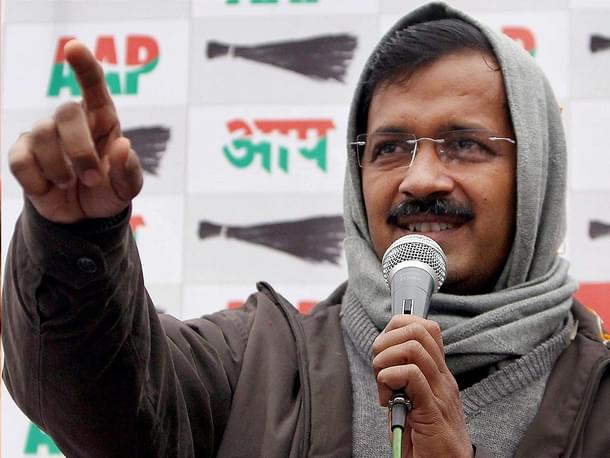
However, Kejriwal shouldn’t be too worried because of these exposés. Bereft of reporters who have insider information about the AAP, mainstream media picked up only two of the stories above. A Times of India link has been furnished. And some other papers — a link appears here — took up the case of forgery months after this correspondent reported it. Thanks to such journalistic lethargy, to what extent the news of these scandals has reached the electorate is doubtful.
Importantly, Kejriwal is the best public speaker in the fray. So what if his Hinglish is all rhetoric, little substance?
BJP
Is the record of Kiran Bedi, the party’s paratrooper chief ministerial candidate, absolutely clean? In the professional field, yes. In the field where the personal gets mixed up with the professional, and in her activities for her NGOs, are there some unanswered questions? I am not referring to the case of raising bills for business class travel while actually travelling cattle class. The Delhi Police fought the case under Indian Penal Code Sections 420 (cheating), 406 (criminal breach of trust) and 120 B (criminal conspiracy), but found no evidence of fraud against her or of siphoning of NGO funds for personal use.
Can the AAP rake up the much older case? In 1992, Bedi’s daughter was given admission to the MBBS course in Delhi’s Hardinge College under a quota for students from the Northeast. Bedi was posted in Mizoram around that period. She stated that her daughter’s application process followed the rules and Central Government employees posted for duty were entitled to apply under such schemes. However, the daughter dropped out and a reserved seat went waste. The super cop did not complete her tenure in Mizoram either, and later said she left without asking!
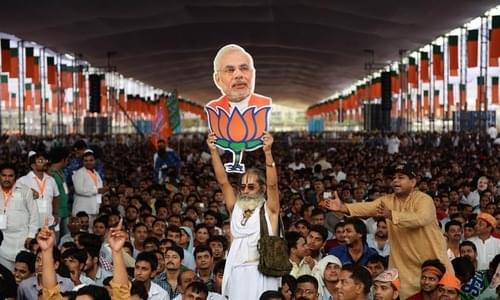
That is close to Kejriwal’s case of leaving the Indian Revenue Service to look after his NGOs and, when questioned by the government, writing to then Prime Minister Manmohan Singh something like ‘I’d told you I was leaving’!
Such goof-ups aside, Bedi cannot be called corrupt by the farthest stretch of imagination. The problem the BJP will face with her is her authoritarian style of functioning, exemplified recently by her audacious invitation to the seven MPs of the party to virtually report to her.
The party’s Delhi cadre is crest-fallen, but its supporter base is upbeat. This writer’s sources in the Ashoka Road and Pant Marg offices had said months ago that Bedi was seriously being considered for Delhi’s top rank, but the parleys between them and the voluntarily retired law enforcer could not materialise because of her insistence that she would take up the charge only if given the power to overhaul the local unit. Before May 2014, the focus was Lok Sabha election where Narendra Modi’s image was doing the trick for the party; so the issue was put on the backburner.
Now, amid protests by the local cadre, why are the supporters going gung-ho about Kiran didi? Because the Delhi unit was in such a mess that Bedi’s demands looked reasonable. First, take caste. Until recently, one could say that any office bearer of the local BJP you were introduced to would, in all likelihood, turn out to be a Goyal, Gupta, Garg, Agarwal, Bansal… After Vijay Goel, even Dr Harsh Vardhan — who is a Goyal, too — did not do anything to ensure a good caste mix. In fact, when the Member of Parliament was moved from the Health to the Science & Technology Ministry, it was a result of Prime Minister Modi acting under pressure of the Baniya lobby that was unnerved by the Upadhyays and Jhas crowding the party in recent times — my sources say.
Modi thought a less busy Harsh Vardhan at the Centre could spare time for Delhi and restore confidence in the Baniyas of the party. Though the prime minister has ruled out sending any MP back to his home state, the lobby thought they could make the boss change the rule in the next round of negotiations. Unfortunately for the doctor, it meant a Trishanku status — neither with an important portfolio at the Union level, nor the chief ministerial candidate at the state level.
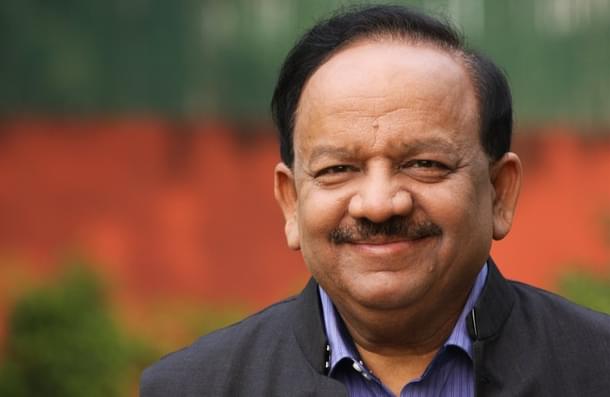
The conspiracy theory that he was removed under pressure from tobacco and pharmaceutical lobbies is bogus. Much of the investments of tobacco companies have long shifted to lifestyle businesses: hotels, resorts, clothing, sports gears, etc. And in pharma, the Pfizers, Bayers, Mercks, etc are troubled by India’s generic drugs, not Ayurvedic preparations that the good doctor was promoting. The conspiracy theorists appear ignorant about another fact: Pharmaceuticals is under the Ministry of Chemicals, not the Ministry of Health that Dr Harsh Vardhan headed before he was shunted to the Ministry of Science & Technology.
Second, one often wonders why the BJP is always the last to shoot off the starting block in all elections. It is explicable. Leaders of big parties are themselves big enough to float independent outfits or join a rival if denied nomination by the original party. With just three weeks remaining for the campaign, an independent cannot turn around enough support for himself, and the competitors have already declared their candidates; so the disgruntled elements have no choice but to grin and bear it, staying in the party.
This can be better understood by those who have been into activism. Months before any election, one would see the city’s walls plastered with the lotus symbol along with faces that the BJP did not declare as their candidates for the upcoming poll. This is an indirect pressure tactic. If denied tickets early, they would promptly switch to another party or float themselves as independents, with the advantage of having their faces already well advertised. It is this attitude betraying organisational indiscipline that Bedi, the disciplinarian, can rein in — believe the supporters [there is a third factor that appears towards the end of the article].
Congress
There is, of course, another visibly honest contender. When an ‘honest’ Jagmohan of the BJP was defeated from the New Delhi parliamentary constituency in 2004, analysts said he had lost his USP as winner Ajay Maken was no less ‘honest’.
But as of February 2015, honesty is beside the point. We are past the 2011-13 period when the UPA government’s alleged 2G spectrum scam, coal block allocation scam, Commonwealth Games scam etc had the people of the country up in arms against the establishment. Corruption, or what appears corruption, is no longer a workable electoral plank. The self-certification drive of neither Kejriwal nor Maken is going to work when seven months of NDA government has passed without one report of the Centre’s corruption.
The Congress is, therefore, reminding voters, whatever the capital is today, the people owe it to Sheila Dikshit’s governance. This is plausible, but it has a strategic flaw. It’s the middle class that is in awe of swish roads and swanky buildings, but this class has moved to the BJP. The poor, who voted the Congress for years on end, curse such ‘development’. For, next to every flyover that stands as testimony to Dikshit’s drive lies a slum with not a semblance of basic amenities like water supply, constant electricity and proper drainage.
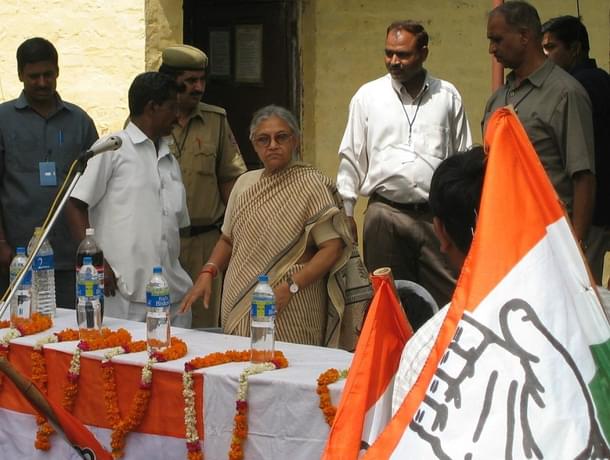
Here is how the destitute are likely to react to Maken’s appeal. In the Assembly-wise break-up of Lok Sabha election results, wherein the BJP registered a resounding margin of victory of 7-0 over its rivals, the ‘saffron’ party snatched away 24 Assembly segments that the AAP had won in December 2013, all of which are middle class localities. Overall, the BJP added 29 Vidhan Sabha segments that were not with it in the period 2008-13 and December 2013 – February 2014. The AAP wrested five seats from the Congress: Badli, Sultanpur, Matia Mahal and Okhla. It retained the Vidhan Sabha segments of Deoli, Ambedkar Nagar, Sangam Vihar and Seemapuri.
The general profile of the constituencies where the AAP won makes one believe it is a favourite of the have-nots. While this is bad news for the Congress that had won them over till 2008, it’s an alarm against complacency for the BJP.
This writer, in the middle of 2013, bumped into some BJP leaders while campaigning for the AAP. When told we were winning in all slums and resettlement colonies, they said, “Oh, is it? Then we are winning the Assembly elections.” “How so?” I wanted to know. “They are Congress strongholds. We do not even peep into those pockets. If you are winning the slums, you are hitting the Congress!” said one of the lazy politicians of the local BJP unit.
That is the third factor for which the BJP needed a strong local leader. This complacency must go if Modi wishes to see achchhey din for his party in the coming Delhi election results. Besides, it must have been beneath the stature of the prime minister to be seen fighting a local challenger. Hence Bedi!





